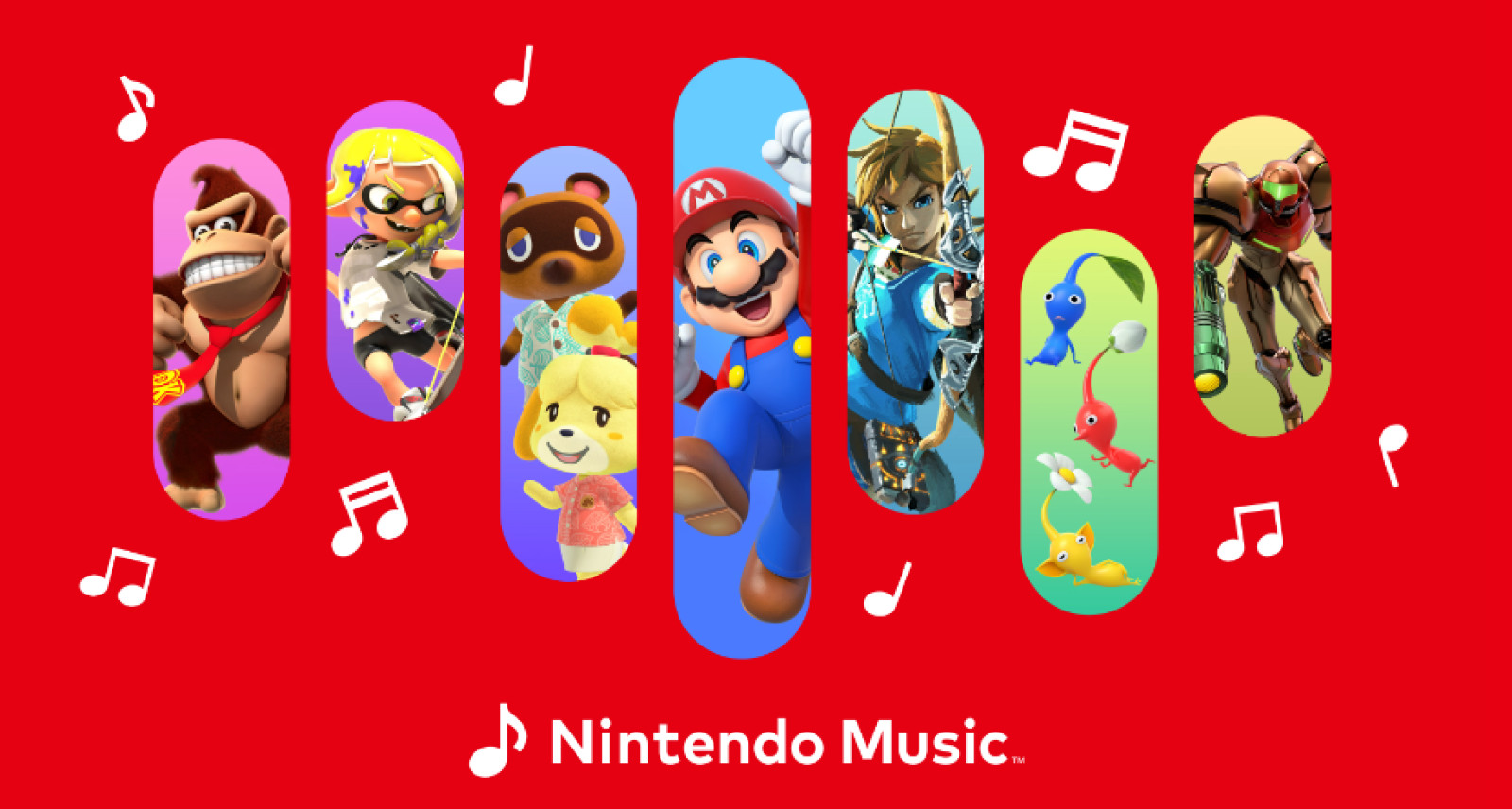Nintendo’s music app underlines its cross-entertainment future


Nintendo is at the forefront of the cross-entertainment trend. Alongside console games and hardware, Nintendo’s strategy spans theme parks, Hollywood (including the billion-dollar-grossing Super Mario movie), mobile, toys, merch, and even alarm clocks.
But all paths lead consumers back to Nintendo's core gaming brand.
Yet, fans had been on forums and Reddit asking for an official path to listen to Nintendo tunes for years. Nintendo has finally given in but – as always – has done things a little differently.
The dedicated Nintendo Music on Android and iOS, available exclusively for paid Switch Online subscribers, offers soundtracks from 25 Nintendo games (with more to come).
Nintendo Music continues Nintendo’s cross-media story, perhaps pointing to a future Nintendo Video app – or even something more.
How does Nintendo Music work?
On the surface, Nintendo Music shares plenty of DNA with Spotify and other music apps, offering offline listening, curated and personal playlists, and search functionality by title, track, and playlist.
That said, Nintendo Music has missed some opportunities. The following are currently limiting Nintendo's aim of creating more consumer cultural touchpoints:
- No functionality with Apple CarPlay or Andriod Auto: Our Q3 2024 consumer research shows that 39% of consumers(and 45% of gamers) listen to music in the car every month, pointing to low-hanging fruit
- Incomplete library: Nintendo’s music catalog spans 40 years, but Nintendo Music’s 25 game soundtracks only scratch the surface. This might be by design to bring fans back to the app consistently (timed with new game releases)
- No web app: Nintendo Music is currently stranded on iOS and Android. Nintendo emphasises listening at work in its Nintendo Music marketing, but a lack of desktop support adds friction here
What’s more, needing a Nintendo Switch Online subscription to access Nintendo Music limits the service’s total addressable market.
As shown in Nintendo’s fiscal Q2 results, Switch Online had around 34 million subscribers at the end of calendar Q3 – that’s just 5% of Spotify’s 626 million subscribers.
Despite this, over 500 thousand people downloaded the Nintendo Music on Android at launch, and it launched on the top downloads chart for iOS.
Featured Report
Podcasts as a key information source Implications for media companies
Podcasts have begun to rival traditional media as a key source of news and political information for podcast listeners, especially among millennials and Gen Z. To stay relevant, traditional media must...
Find out more…This points to Nintendo Music's penetration sitting at around 3% of Switch Online subscribers, marking a solid first effort that points to the power – and nostalgia – of Nintendo’s music.
Those numbers would undoubtedly be higher had Nintendo simply released its music on Spotify, which could be seen as a disadvantage, but this isn’t about increasing off-platform engagement.
So why didn’t Nintendo just release its music on Spotify or other platforms?
For Nintendo, keeping control of its brand is king. This is likely why it decided to keep Nintendo Music closer to its core – all while creating a consumer touchpoint for its brand and subscription.
The rationale is similar to why Mario and other Nintendo characters are missing from Fortnite, while every other band jumped headfirst onto Epic's metaverse bandwagon. Nintendo has always been extremely guarded with its IP, often ignoring seemingly prevailing trends to do its own thing and taking litigious action against anything threatening its brand. Family-friendly fun has always come first.
While Nintendo's unique strategic approach led it to fall behind its competitors some aspects (online gaming, for example), focusing on its brand has helped Nintendo control its family-friendly narrative, message, and reputation. Nintendo has nurtured its IP for decades, slowly transforming itself into one of the world's most regonisable family brands.
With Nintendo Music, Nintendo is similarly looking to complement its own ecosystem and keep the musical ball in Nintendo's court, not Spotify’s.
Nintendo Music is all about creating a value add for current Nintendo subscribers and fans and giving players cross-entertainment touchpoints when they’re not playing. This is not about marketing games to outside audiences through music.
It is also worth noting that Nintendo Music offers some functionality only really possible with a bespoke app:
- Recommendations based on Switch play history: As Nintendo Music is linked to the Switch Online account, it gives users unique playlists based on what they have played
- The ability to hide spoilers: Nintendo tags tracks that might spoil certain in-game surprises, allowing Nintendo Music users to skip these tracks
- Extend tracks: Many tracks can be extended (to 15, 30, and 60 minutes) to enable longer passive listening
That last point is important, as game soundtracks can seamlessly loop in different intervals, as players might be in a given game area for one minute or two hours.
MIDiA consumer research (Q2 2023) shows that 41% of Switch owners listen to lo-fi soundtracks that help with study and work, compared to 32% for the consumer average.
Game soundtracks are fantastic for working and studying, specifically composed to keep players engaged, focused, and motivated without being overly distracting.
What’s next for Nintendo’s cross-entertainment ambitions?
Nintendo clearly wants to be the next Disney. It might just be the only company with the IP and brand to make it happen.
“With our initiatives to expand access to Nintendo IP, we aim to continually create touchpoints with consumers and deepen their fondness for Nintendo IP,” said Shuntaro Furukawa, President of Nintendo.
“We will continue using Nintendo Account to build positive, long-term relationships with consumers who encounter our game through our various IP initiatives.”
Nintendo Music falls under this umbrella, but Nintendo is spinning plenty of other cross-entertainment plates:
- Film and TV: Following the success of the first Mario movie, Nintendo is developing a sequel and a live-action adaptation of The Legend of Zelda
- Theme parks: Nintendo’s quest to become the next Disney is in full swing. It has one Super Nintendo World in Osaka, another in Hollywood, and plans to open one in Florida in 2025, as well as one in Singapore in the coming years. It has also opened a museum in Kyoto
- Physical merch shops in Tokyo, Osaka, Kyoto, and New York, with plans to open another in San Fransico, as well as pop-up stores across the world
Nintendo Music is just the beginning. Perhaps we will see Nintendo Video next, as the company continues along its cross-entertainment strategy. Or perhaps an all-in-one media app that encompasses all of Nintendo’s non-game media, all hinged around the Nintendo Online subscription. The subscription could also offer discounts on merch, theme park perks, and more.
As public attention shifts to the Switch's successor, Nintendo is playing the cross-entertainment long game. Armed with the power of its IP, a clear cross-entertainment strategy, and a seemingly smooth transition to the next console, Nintendo seems poised to succeed.

The discussion around this post has not yet got started, be the first to add an opinion.